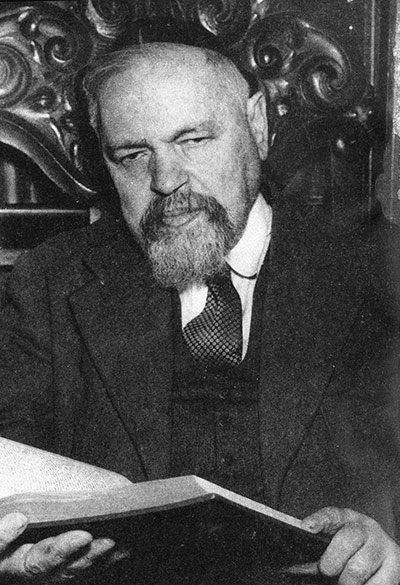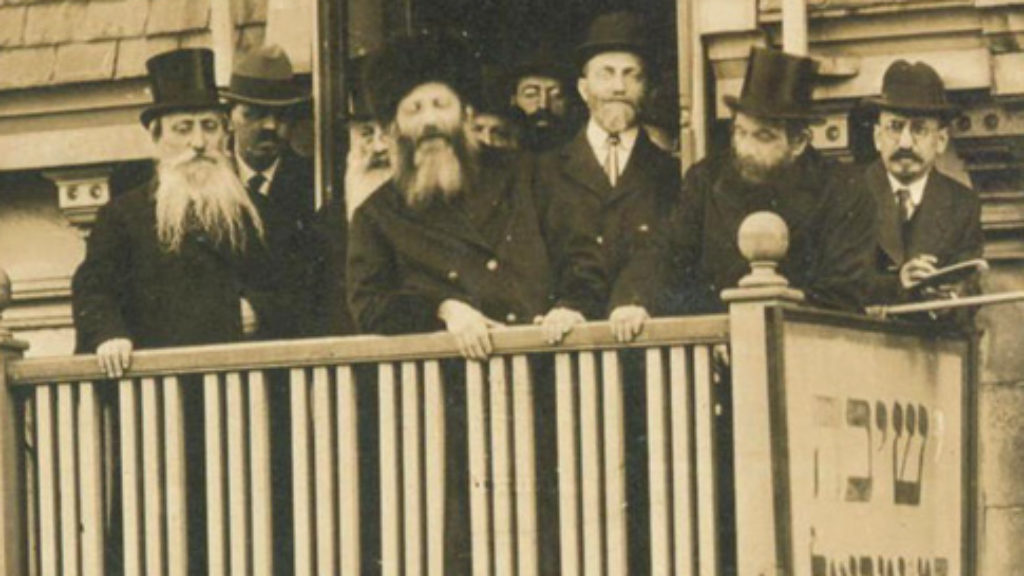Halakha and Theocracy: A Response
I am grateful to Allan Arkush for reviewing my book, The Invention of Jewish Theocracy, in your last issue, and I appreciate this opportunity to clarify some of the issues he raised.
Many religious Zionists in Israel champion the idea of the “halakhic state,” which maintains that the State of Israel should be governed exclusively by halakha. In my book, I argued that this idea, whose primary architect was Rabbi Yitzchak Herzog, was an innovation—that it was different not only from the ways that Jews had always lived in practice but even from the idealized version of a Jewish state that Jews had imagined. In real life and idealized fantasy, halakha certainly had an important role in Jewish political thought, but not an exclusive one; halakha always operated alongside other nonhalakhic normative sources that were considered binding by Jews.

Arkush, by contrast, believes that religious Zionists were not doing anything fundamentally new but were basing themselves on a “venerable, unifying, theocratic model” that existed among premodern Jewish thinkers. Arkush sees in the writings of Maimonides, “a detailed halakhic blueprint for what appears to be a theocratic monarchy.” He objects that I pay too little attention to Maimonides and that I focus too much on the “much less famous” Nissim of Gerona (the Ran) because, Arkush assumes, the Ran better describes the kind of legal pluralism that I claim was the norm in premodern Jewish communities.
This is where some clarification is warranted. I do not write about the Ran because he is famous (though he was, by any standard, one of the most important medieval rabbis) but because the religious Zionist rabbis whose thought I reconstruct in my book refer to him very frequently as a model either to be followed (in the case of several thinkers before the late 1940s) or to be rejected (in the case of Herzog and his many followers). The Ran noted that halakha cannot exclusively govern any society because it is “ultimately not concerned with political order.” As a result, any polity, even one in which Jews have sovereign authority, must be governed, alongside halakha, by legislation created by political rather than rabbinic authorities.
The reason the Ran looms so large in religious Zionist writing is not that he is exceptional but precisely because—and this is a crucial point—he was unremarkable. He merely offered the fullest expression of a position that was taken for granted by his readers. The Rashba, for example, an authoritative figure of the 13th century, had the same view, also quoted in my book: “If you were to restrict everything to the laws stipulated in the Torah . . . the world would be destroyed.”
What of Maimonides? As I readily acknowledge, Maimonides goes further than some other medieval thinkers in boosting halakha’s role in a Jewish state. But even he writes that, unless Jewish courts are be prepared to rule against halakha on occasion, governance will be impossible (“Laws of Sanhedrin” 21:5). Indeed, even amid his description of what Arkush takes to be a “theocratic blueprint” for an ideal Jewish polity, Maimonides writes at length about the power of the king to create nonhalakhic legislation and to enforce it on pain of death to maintain order and preserve a functioning society (e.g., “Book of Kings and Their Wars” chapters 3 and 4).
Of course, all these medieval thinkers believed that halakha should have a central role in Jewish life, and they discerned divine approval even for their reliance on nonhalakhic law. But within these parameters, there are many ways that the relationship between religion and politics can be configured, and the battle to establish halakha as the sole source of law in a modern state deviates decisively from the traditional position. This is not a controversial observation. Scholars have long noted that medieval Jewish thinkers, including Maimonides, accepted the authority of a “civil sovereign” (a term used by Rabbi Aharon Lichtenstein) alongside rabbinic authority. In Rabbi Lichtenstein’s words, “the halakhic state is thus ruled jointly. . . . The respective civil and ecclesiastical authorities operate on the basis of radically different mandates and from very different perspectives.” Given that Arkush wisely puts stock in the work of Aviezer Ravitzky, it bears quoting Ravitzky’s summary of this very point: “‘Theocracy’ itself proclaims that it is not self-sufficient; that it depends substantially on the existence of a secular, human and political realm.”
This is why I insist that we need to look carefully for historical explanations when we see Herzog claiming that it is “inconceivable” that the Torah might allow for legislation besides halakha, or his colleague Bar-Ilan calling on his followers to “prepare immediately for war . . . for a state law that is based on the laws of our holy Torah . . . and no other, none besides it.” My argument is that this position, while a departure from traditional Jewish thought, has its origins in modern legal reforms, by which European states reorganized the archaic jumble of their many medieval courts into a unified legal system. This explains why the new religious Zionist thinking adopted not only the theory of modern jurisprudence but also its institutional structure, which included a court of appeals (which had almost no precedence in Jewish history), as well as the attempt to create a halakhic legal code explicitly modeled on modern European law books.
I will not reiterate here the archival discoveries or textual analyses included in my book that support this view; I hope that readers of the book will find it convincing. Here, I merely wanted to identify where I depart from Arkush’s reading of Jewish history and why I stand by my assertion that the religious Zionist construction of the idea of the “halakhic state” is not an adherence to an old theocratic idea but something quite new.
Allan Arkush’s original review of The Invention of Jewish Theocracy can be found here.
Allan Arkush’s rejoinder to Alexander Kaye’s response can be found here.
Suggested Reading

Dialectical Spirit
A new intellectual biography explores the thought and legacy of Rabbi Abraham Isaac Kook.
A Normal Israel?
Zionism has long based its claim to sovereignty on the universal right to national self-determination, and the phrase “like all other nations” has been incorporated into Israel’s Declaration of Independence, yet the goal of “normalization” has proven to be much more complicated than most early Zionists had thought.
The Audacity of Faith
The career and life of Yehuda Amital—unconventional, unpredictable, and free of clichés.
State and Counterstate
Debates about Zion and its relation to the diaspora aren't new. David Myers and Noam Pianko have retrieved the forgotten ideas of several interesting figures, foremost among them Simon Rawidowicz. Do they speak to us now?
Comments
You must log in to comment Log In